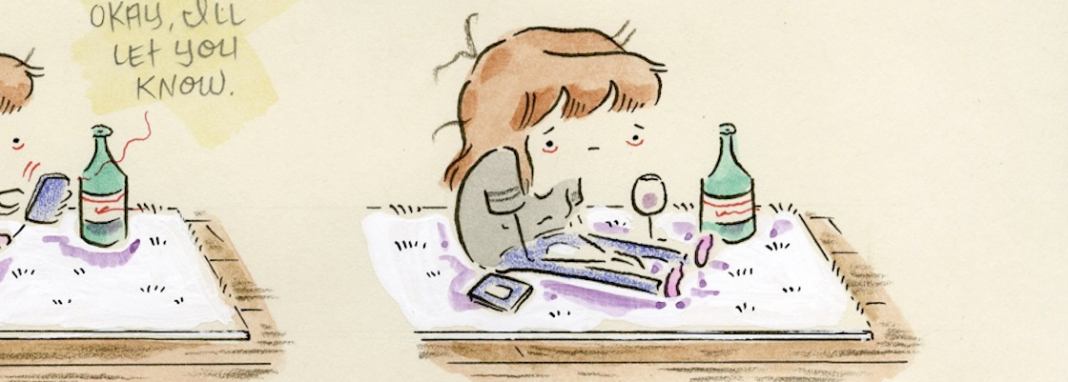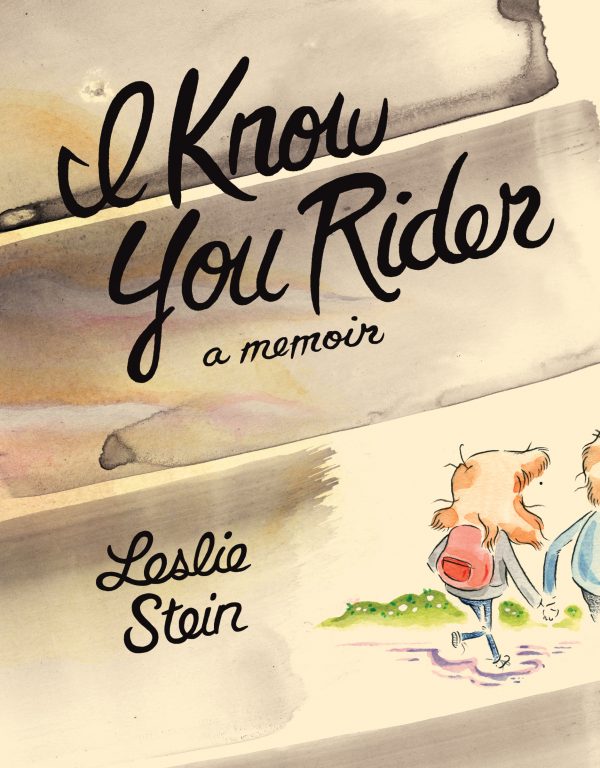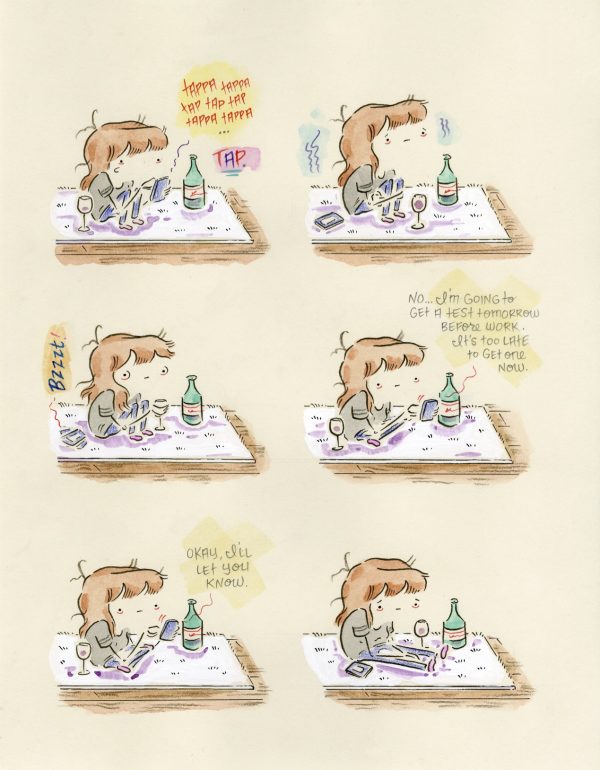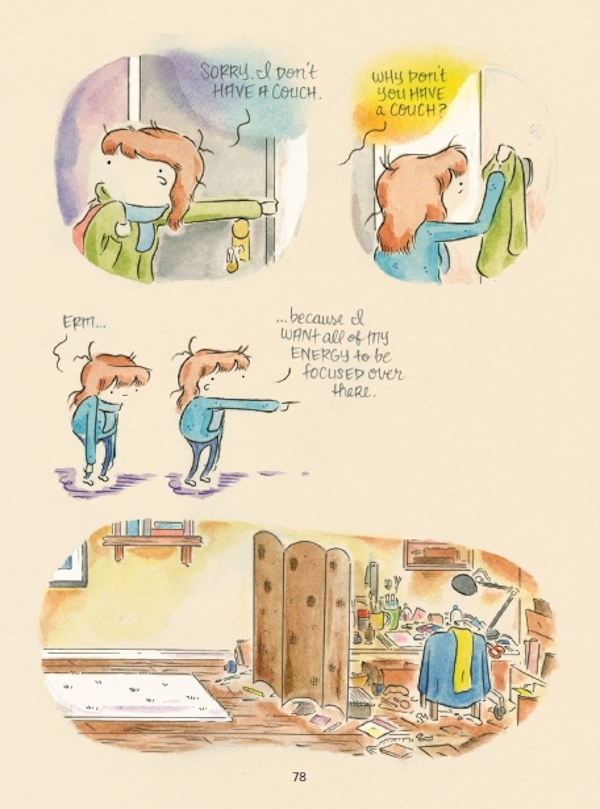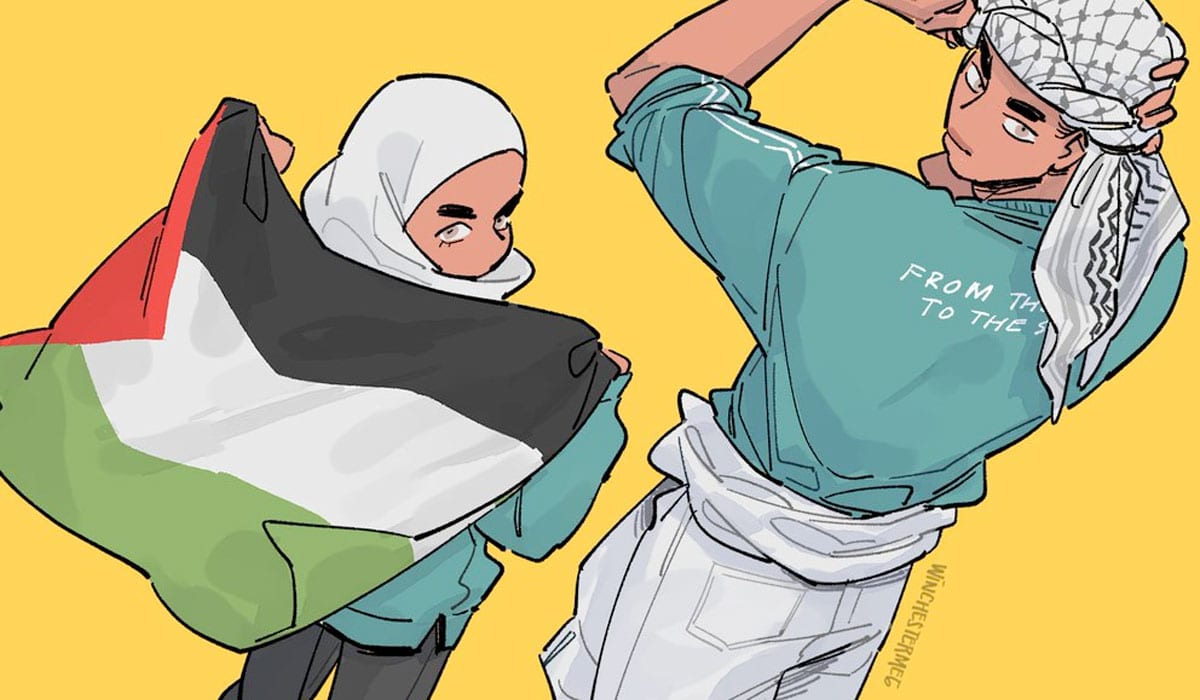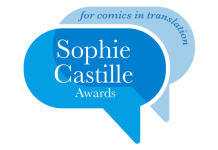I Know You Rider
By Leslie Stein
Drawn and Quarterly
One of the aspects of Leslie Stein’s work that sets her apart from other autobiographical cartoonists is the visual one. Her art is unlike any other in the comics field across the board, but especially when it comes to autobiography. She rejects strict panels in favor of sequential moments laid out on a page with no framing at all, instead allowing each part of the sequence share the page itself as background. Words aren’t imprisoned in balloons but lay on the same page-defined background as the rest of the “panels.”
Within these are the faceless figures, defined at the edges by their hair, with little dots for eyes and no other features at all, making her humans somewhat mysterious because of not only missing parts, but crucial missing parts — the face is the central way we differentiate one human from another, one of the ways we establish emotional connections with characters, and a factor in deciding who a character is. Stein takes all of that away from us, with is disorienting the first time you encounter her work, but less so once you get used to seeing reality through her perception of it.
In I Know You Rider these are the visual tools a reader is given to follow Stein through a year of her life that is defined in many aspects by her experience of having an abortion. It’s the very first thing you encounter in the book — at least part of it, she’s waiting in a room with other women — before Stein circles back to recount how exactly she got there and what she experienced along the way.
A lot of I Know You Rider centers around her interaction with people, conversations she had with them, about children — having them, not having them, craving them, not quite knowing how you feel about having them — and discovering through these encounters the multiplicity of emotions people feel in regard to having them. Sometimes it’s about the child itself, sometimes it’s about the person, and still others it’s about the world and what it offers, or takes away, from those who live upon it.
But Stein doesn’t cram the book with only those kinds of dialogues, and that’s crucial to its success. Life, whether you have them or not, is not entirely about children, and the decision to have them or not is weighed against so many things, especially the parts of life that do not involve them at all, and Stein depicts those moments well. It gives a fullness in the picture she presents of herself as well as a yardstick against which to measure what life with a child would be like for her.
I Know You Rider comes to the conclusion that any right-thinking narrative would come to — it’s a personal decision — but in doing so, it doesn’t portray the act of reaching that conclusion as simple, nor the factors involved in making that personal decision. Life, as anyone who’s actually lived it and paid attention knows, is incredibly complicated. Sometimes dishearteningly so. Stein applies that very basic piece of information to her memoir and attaches it to herself and multiple others, painting a portrait of how any given personal decision is best made by oneself, but the information you use to make that personal decision is gathered from a community.


